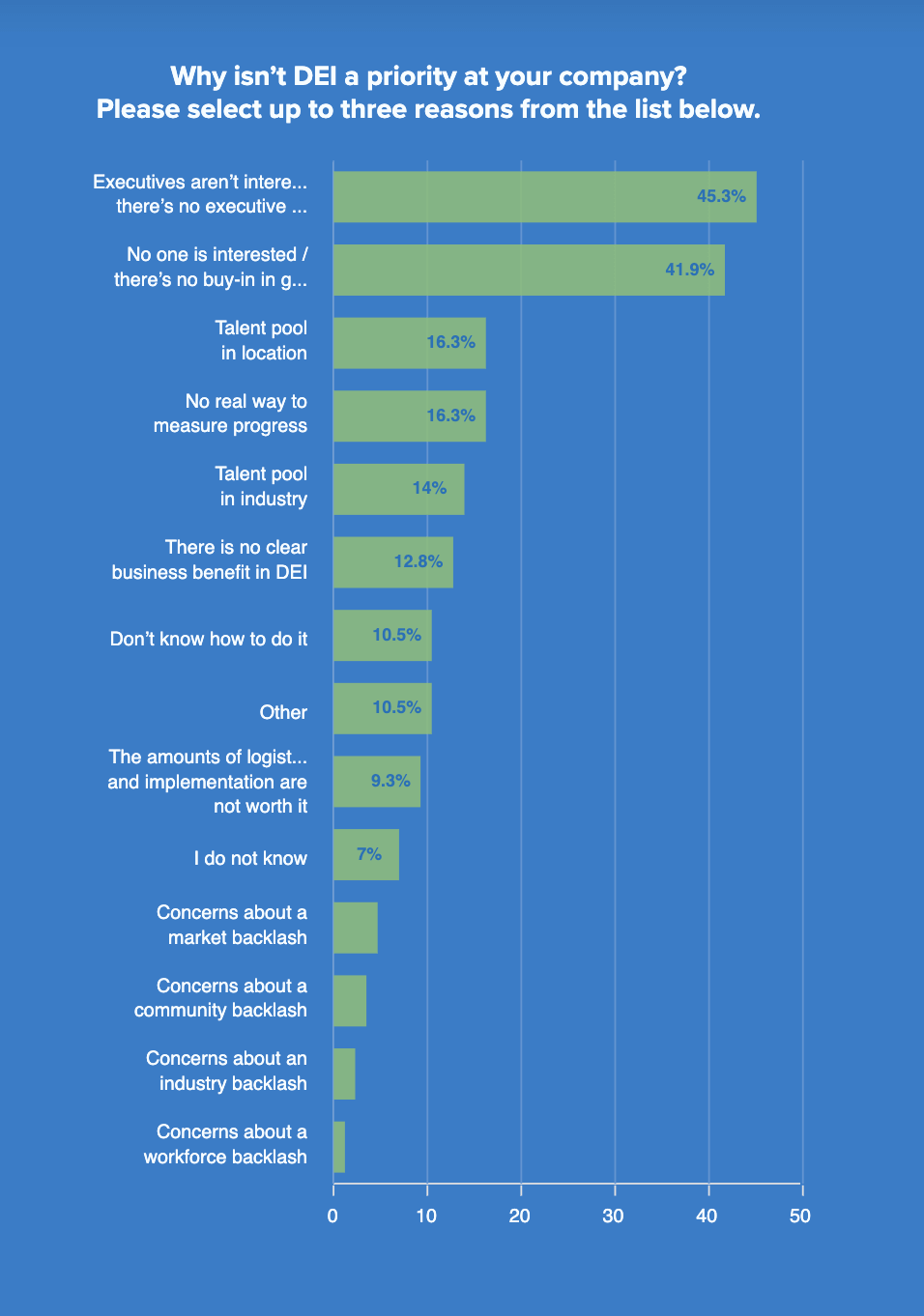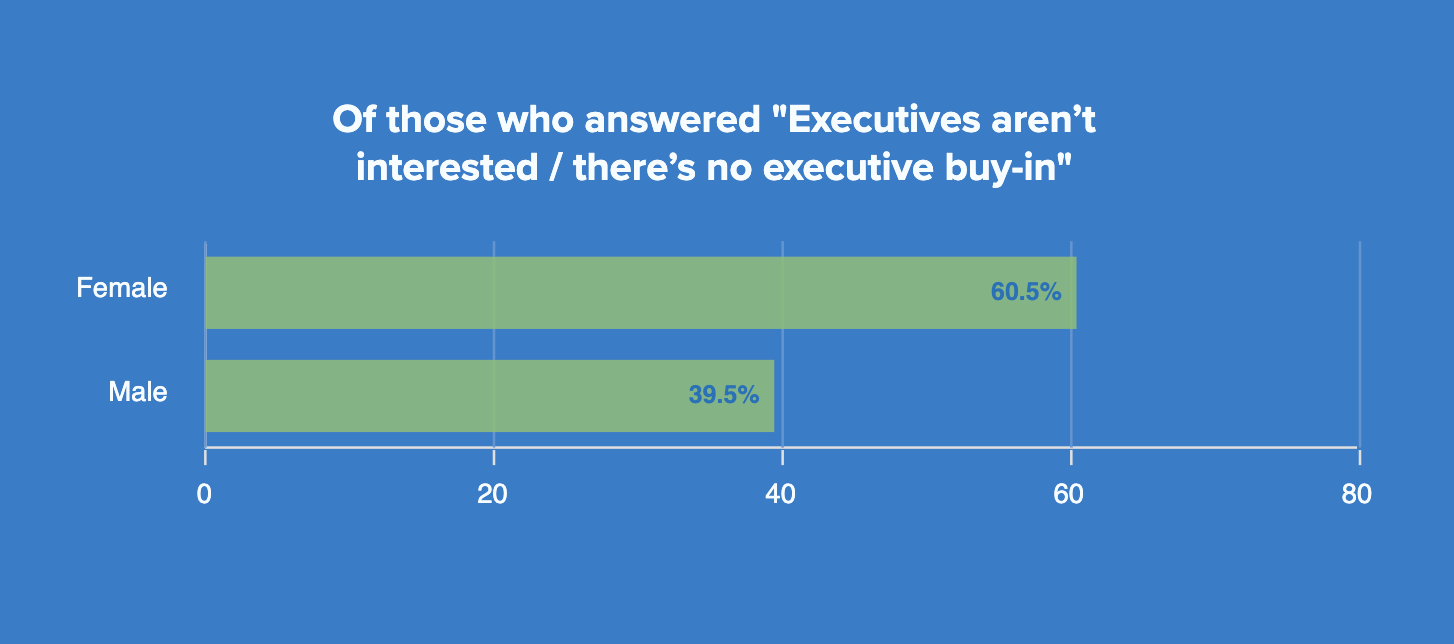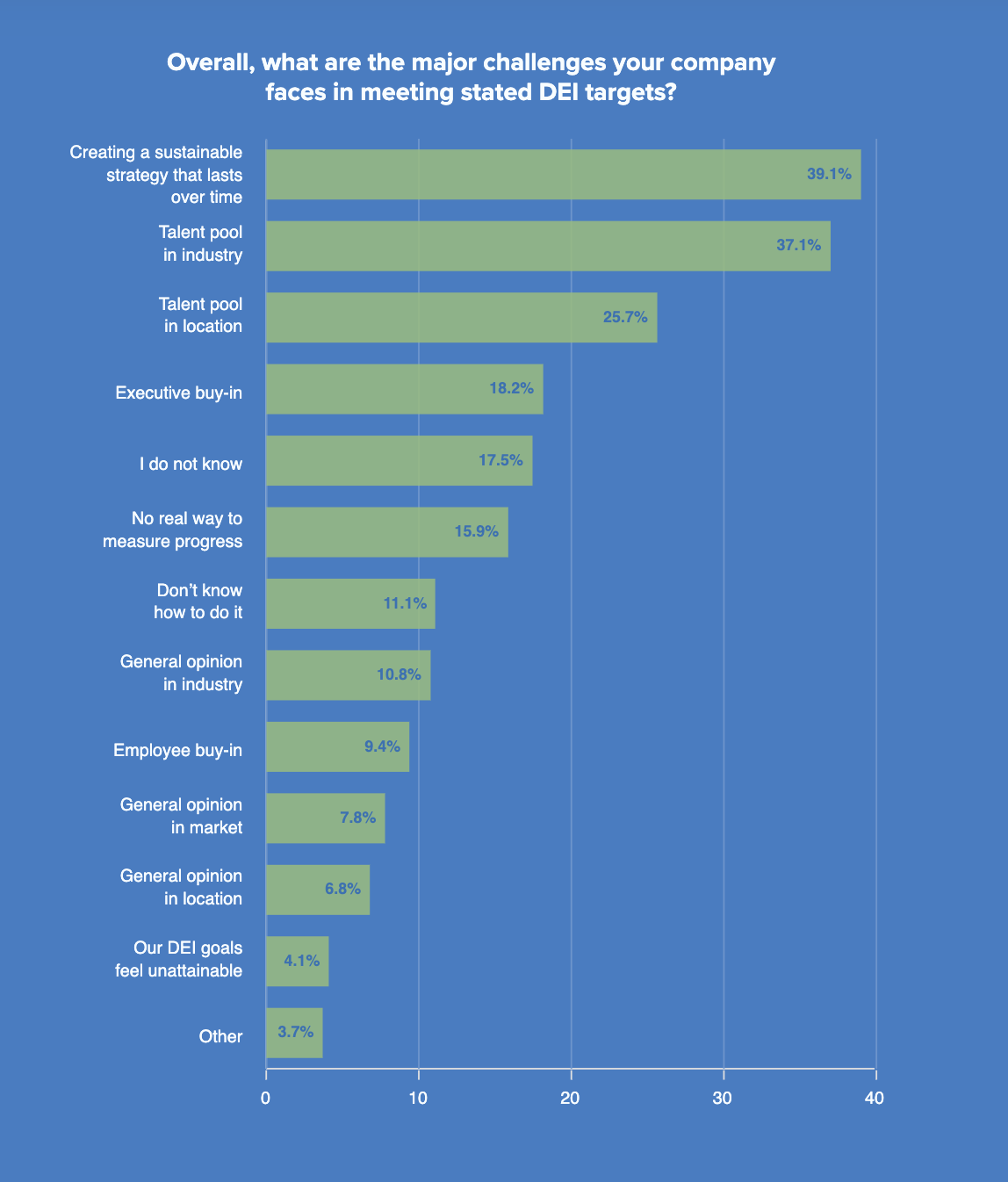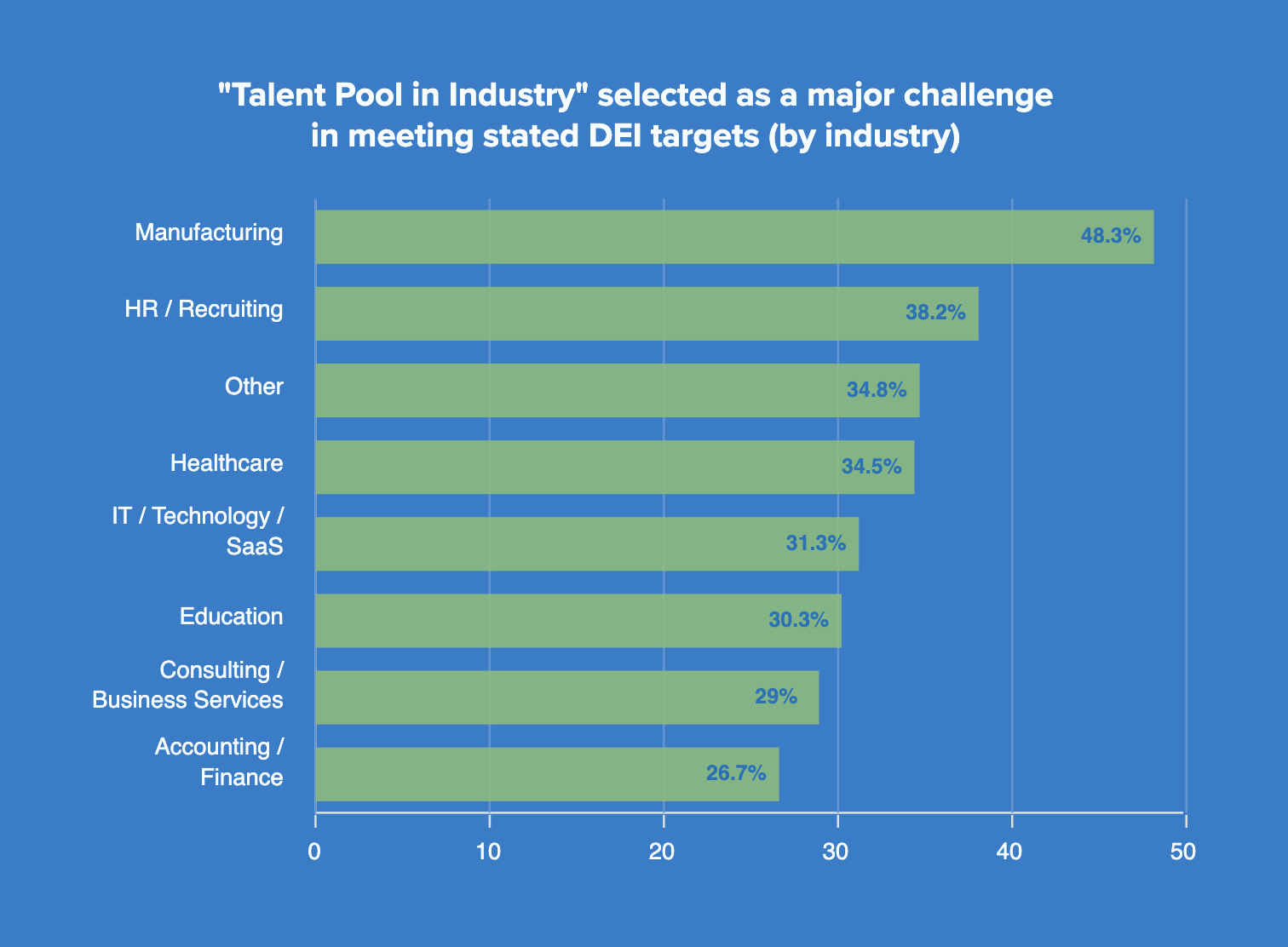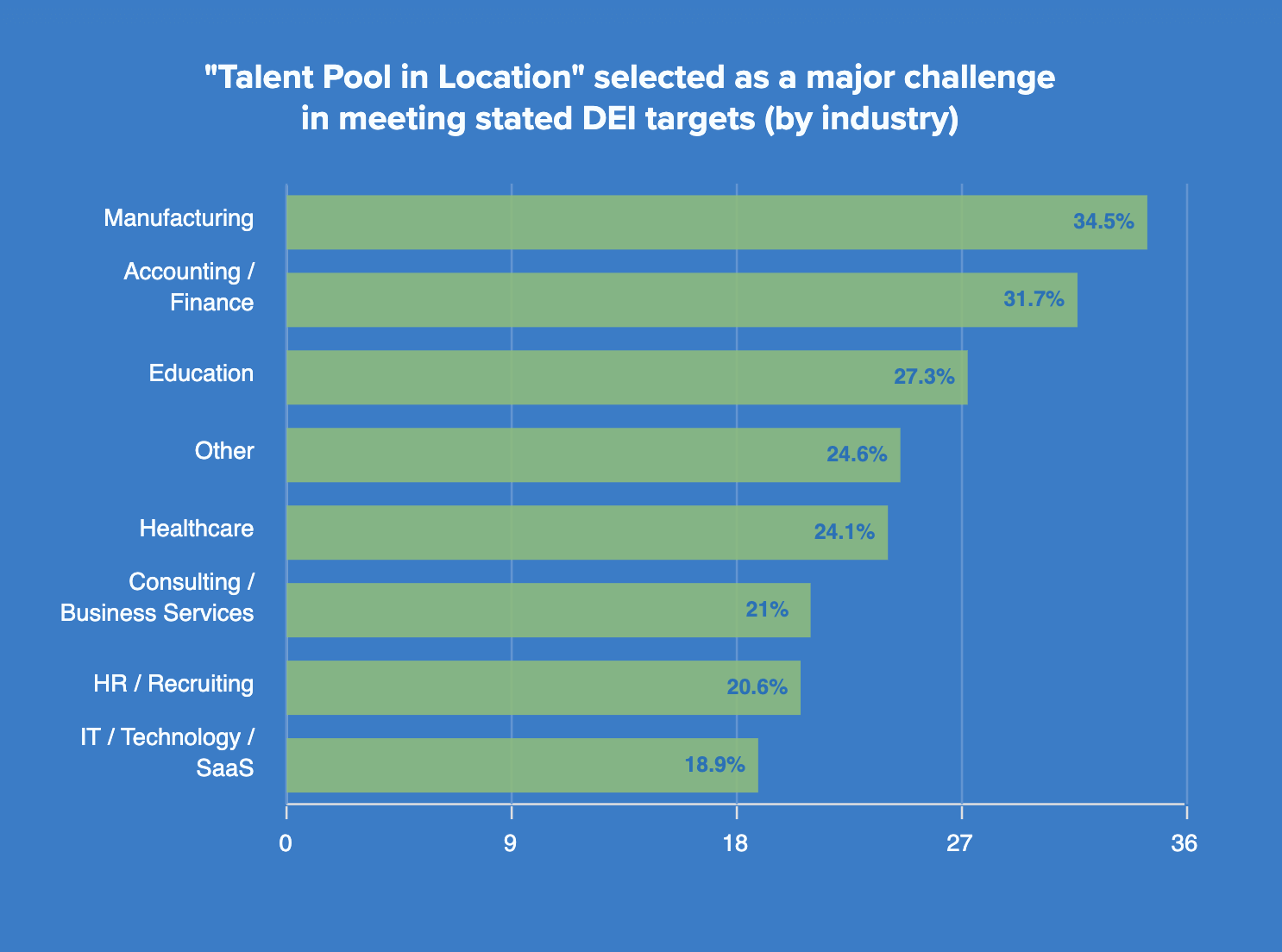Your DEI strategic plan: The road is fraught with hurdles
This is the fifth in a series of excerpts from our survey report titled All roads lead to diversity, equity & inclusion in the workplace. But which one do you take?, which was published in January 2021. Nearly 800 business and HR professionals filled out the 30-question survey, resulting in numerous compelling insights both for business and recruitment interests.

Right now, the data in our survey shows that there’s clear support behind diversity, equity and inclusion at work, but guess what? That road isn’t free of its bumps and obstacles.
We determined in the previous chapter that there are disconnects in terms of who should actually be in charge of your company’s DEI strategic plan. Some say it should be the executive leadership. Others say it should be HR. Others, still, say it should be everyone.
That’s fine. Responsibility and accountability can be a complicated thing, even in a smoothly operating business. Let’s say you do have someone in charge of executing on your DEI strategic plan – even then, our data finds some pretty clear challenges that make it difficult to attain results in your DEI strategic plan.
In this chapter, we address the following questions:
- What are the major obstacles to meeting DEI targets?
- What are the top challenges to a DEI strategic plan in recruiting and hiring?
Buy-in is a challenge
While the number of respondents saying that a DEI strategy is not a priority in their company is relatively small (just 11% overall), we did ask them why it isn’t a priority. The vast majority say there is no interest or buy-in from the executive level (45.3%) or from anyone in general (41.9%).
We also found that those who identify as female are much more likely to say lack of interest from executives (60.5%) was a reason for non-prioritization of a DEI strategic plan in their company, compared with those who identify as male (39.5%).
Again, there’s a major discrepancy here. Is it due to a correlation with a greater proportion of employee-level respondents identifying as female? Or is it due to underrepresentation of females in executive / senior-level / managerial positions?
Or is it because when DEI is emphasized as a topic by a respondent, there’s more resistance to someone who identifies as female? There are numerous potential variables here that deserve to be explored in greater depth.
Diversity is limited to available talent
Diversifying one’s workforce often starts with sourcing, recruiting and hiring more diverse talent – and that is cited as a significant hurdle in a company’s DEI strategy. Respondents say that the available talent pool in their industry (37.1%) and their location (25.7%) are major challenges in attaining stated DEI targets.
“I’ve never seen any minority or female candidates denied or taken less seriously, but the simple fact is that there just aren’t as many female, Black, and Hispanic CS [computer science] grads as there are male, white, Indian, and east Asian CS grads.”
While diversification efforts are limited to talent availability across the board according to our respondents, Manufacturing led other industries here. For those in Manufacturing, the available talent pool in their industry (48.3%) and in their location (34.5%) are cited as major challenges in a DEI strategic plan when recruiting and hiring.
One explanation might be that the manufacturing sector appeals to a specific demographic of the population that isn’t as diverse as the status quo. Perhaps it’s a more male-dominated sector for a variety of reasons – traditionally assumed physical labor requirements, for instance. An explanation for location-based challenges is that manufacturing may involve more physically present work than other sectors – and thus limiting the option to hire remotely to broaden one’s available talent pool.
The ability to operate remotely with distributed teams deserves attention here. Two out of five respondents (39.7%) did say that hiring remotely is a DEI initiative introduced in 2020 – which coincides with the significant shift to remote work in 2020 as a result of COVID-19.
Overall, the limitations are clear. To actively pursue a DEI strategic plan, you need people on board, both in opinion and in availability.
“As a White woman working on a team with 90% men, most of whom are White or non-Black, DEI is an extremely important initiative that needs to be nurtured and facilitated actively. From a hiring perspective, it can be difficult to make progress on DEI efforts when the talent pool largely consists of non-Black & White males. We do make an effort to seek out individuals who would diversify the workplace as this is something we value greatly, however the hiring decision normally comes down to talent, experience, and fit.”
We hope you find our survey results on DEI at work to be helpful to you both professionally and personally. Any thoughts or questions, please feel free to share them with us via Twitter, LinkedIn, or direct email (with “DEI report” in the subject heading). We want to hear from you!
Check out the other excerpts from our survey report on Diversity, Equity and Inclusion:
1. DEI at work: It’s time to take a deep dive
2. What does DEI mean for you and your business?
3. Is there meaningful progress in DEI? Depends on who you ask
4. DEI leadership – and who’s actually doing the work?
6. What are your top DEI initiatives for the workplace?
7. Your DEI recruitment strategy: What are your action items?
8. Time for a DEI action plan: We’ll help you get there

